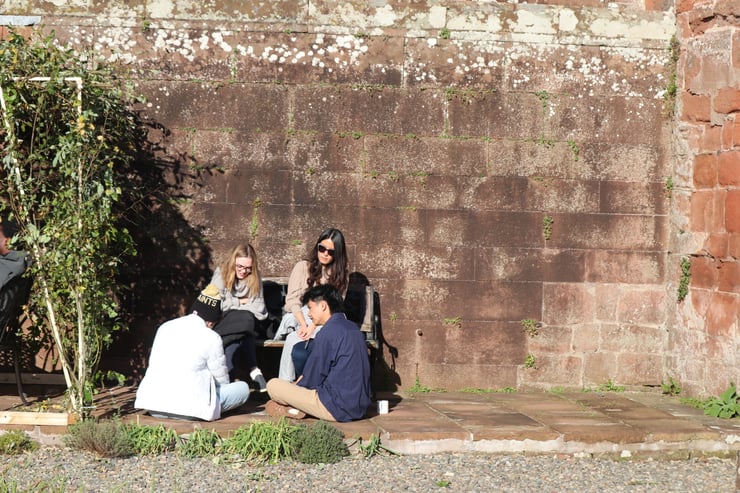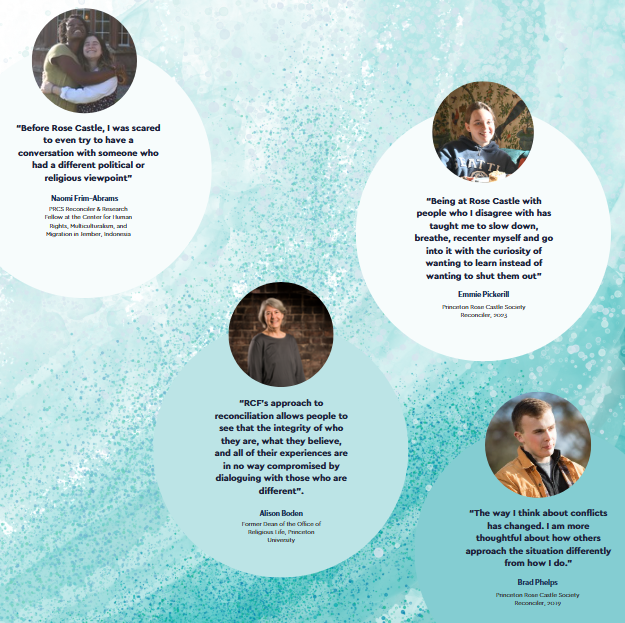Meet the reconcilers behind the Princeton Rose Castle Society
University campuses bring together people from all walks of life - often those in deep disagreement - and are uniquely positioned to open spaces for those who would otherwise never meet to encounter one another’s deepest humanity. Not just as a melting pots to meet others, but to foster an academic and public discourse that harnesses, rather than obscures, difference and a better quality of disagreement.
We believe that by creating intentional and brave spaces for people from vastly different backgrounds to encounter one another, engage and learn from their differences without the need to compromise, all while living alongside one another, we can create substantial change in people’s deepest drivers from hostility to collaboration across difference - and in turn, we can transform conflict.

This is a belief we share with one pioneer, Alison Boden, Dean of Religious Life (2007-2024) at Princeton University - and over the past five years we have put this theory to the test, training four successive cohorts of carefully recruited students in the art and way of being reconcilers and peacebuilders. We have given them the space and tools to consider how to practically build trust on campus and welcomed them to a long-term journey of inner formation, community formation, and a global network of exceptional trust-builders working towards peace and justice across some of the world’s deepest divides.
Increasingly the physical flashpoints for culture wars and microcosms importing geopolitical tensions, this collaboration poses a question: what if we flipped this scenario on its head? What if we embraced the diversity opportunity at universities, didn’t shy away from difference, and got to depth instead?

The partnership between the Office of Religious Life and the Rose Castle Foundation has evolved into jointly supporting the work of the Princeton Rose Castle Society.
The Society is home to cohorts of Princeton students from all walks of life who are committed to living out the reality of difference, disagreement, hostility, and conflict - and to tend to tensions in pursuit of the common goal of deeper relationship - not shallow agreement. Past cohorts have included students from completely oppositional and competing ideological groups: Opus Dei and LGBT+, Tigers for Israel and Student Justice for Palestine. Participants are bonded by strength of commitments to the beliefs, values and communities that most deeply shape them. Often these communities talk past each other and can be engaged in direct conflict in ways that threaten to destabilise campus life.